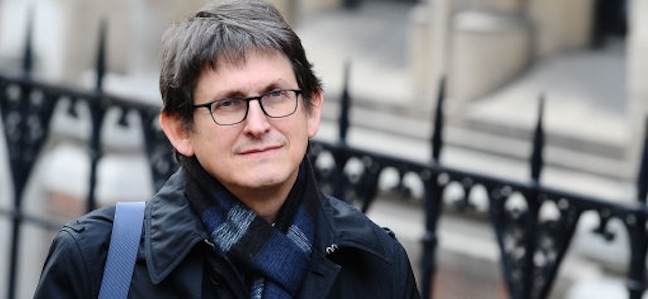The Guardian cheered when tabloid journalists were arrested but now laments Leveson
QUOTE of the year: The Guardian’s director of editorial legal services Gill Phillips was specking at the Protecting the Media conference in the City of London. Said she:
“What Leveson has come up with is the worst of all worlds…. If anything demonstrates why we do not want a government regulating the press, David Miranda is that. We live in a democratic state and they still did what they did to David Miranda for no good reason at all. It goes back to the whole debate about why we shouldn’t have the state regulating the press.”
That from the paper that cheered when the News of the World was brought down. The Guardian that was quite delighted when tabloid journos were getting their homes raided by police. The Guardian that saw nothing wrong with tabloid writers being arrested. When the Wooden Tops raided the Daily Star’s offices and removed computers and notebooks, did the Guardian complain? No. Bu then the police knocked on its doors and took and destroyed things.
…
David Miranda is Guardian Glenn Greenwald’s partner. He was detained by anti-terrorism police at Heathrow airport, and found to be in possession of encrypted information from the NSA grass Edward Snowden. He’d arrived in the UK on flights paid for by the Guardian. Yeah. He’d got stuff by, allegedly, illegal means. That he was seized by police is appalling. That they took his possession of him is foul.
But when tabloid journalists were seized, the Guardian did not rant about State abuse of power. No. The Guardian told Lord Justice Leveson that the British press had been “under-regulated”.
Well, it isn’t any more…
Here’s a few things the Guardian did say:
One possible starting point for the press and politicians would be to accept the rest of the Leveson report in full. This approach would require the press, in particular, to acknowledge the force and logic of much of his argument and to explain how it proposes to meet his challenges – including the central test of whether it is possible to achieve effective, independent regulation – without the use of statute.
To read some accounts of Monday night’s Leveson vote a casual reader could be forgiven for thinking that Britain’s press stands at a historic crossroads. One arrow points to freedom, the other to the end of all that Milton, Wilkes and Mill lived and died for.
The truth is rather more mundane. MPs are being asked to choose between two versions of a royal charter – a medieval piece of constitutional nonsense that fudges the issue of statutory regulation. There are good and bad things in both charters, not a straight choice between virtue and evil – and nothing in either to signal the death of press freedom. …
The Leveson inquiry was a necessary and useful examination of the ethics and standards of the press. The judge’s report contained much that was sensible, along with some things that were much more contestable. It is a healthy thing, not a bad thing, that the whole issue of press regulation is the subject of open discussion and scrutiny.
Photo: Editor of the Guardian Alan Rusbridger arrives at the Leveson Inquiry at the Royal Courts of Justice in London.
Posted: 20th, September 2013 | In: Reviews Comment | TrackBack | Permalink



